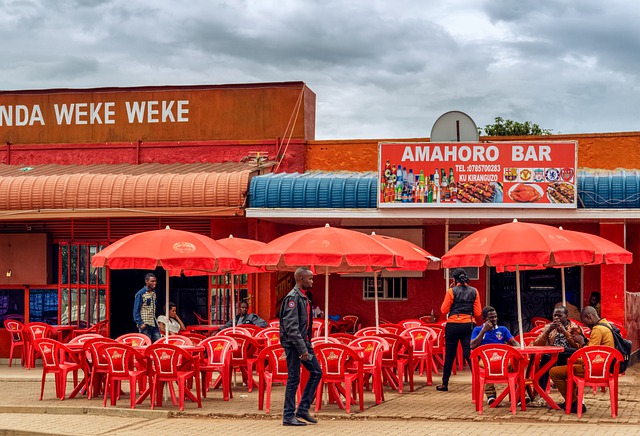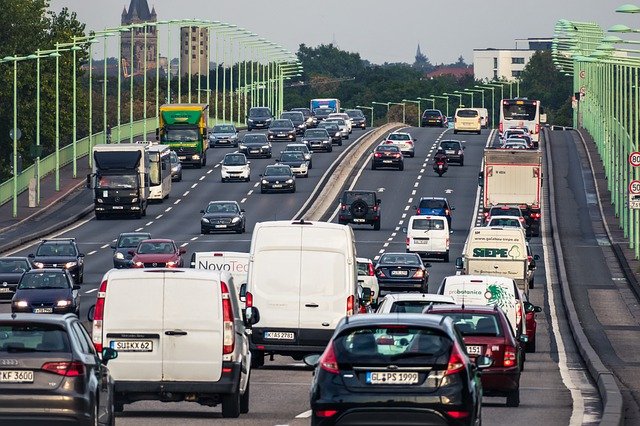Department of Justice announces antitrust lawsuit: Google unlawfully maintaining monopoly
PUBLISHED TUE, OCT 20 2020 9:23 AM
Lauren Feiner
@LAUREN_FEINER
KEY POINTS
Google now faces its first antitrust lawsuit by the federal government as the Department of Justice announced charges against the tech giant.
Eleven Republican state attorneys general have joined the DOJ as plaintiffs.
Google’s search and advertising businesses are key areas of interest for antitrust regulators.
The Justice Department filed its long-expected antitrust lawsuit against Google on Tuesday alleging the company has unlawfully maintained a monopoly in search by cutting off rivals from key distribution channels.
Eleven Republican state attorneys general have joined the DOJ as plaintiffs.
Google’s stock barely moved following news of the suit. Shares were up more than 2% during afternoon trading.
The DOJ and states are bringing the complaint under Section 2 of the Sherman Act, alleging Google has unlawfully maintained monopolies in markets for “general search services, search advertising, and general search text advertising.”
“Google is the gateway to the internet and a search advertising behemoth,” U.S. Deputy Attorney General Jeffrey Rosen said. “It has maintained its monopoly power through exclusionary practices that are harmful to competition.”
The states in the lawsuit are Arkansas, Florida, Georgia, Indiana, Kentucky, Louisiana, Mississippi, Missouri, Montana, South Carolina and Texas.
The lawsuit is the culmination of a more than year-long investigation into the company’s business practices. It’s the most significant antitrust lawsuit since the Justice Department sued Microsoft in the 1990s alongside a coalition of state enforcers. Google was previously the subject of a federal antitrust investigation by the Federal Trade Commission over its search product, but the agency closed that probe in 2013 without charges. A leaked document published by The Wall Street Journal later showed that staff had recommended bringing a case on several grounds.
Allegations against Google
The crux of the complaint is that Google has allegedly used its monopoly power to tie up distribution channels for online search and related markets. The Justice Department claims that Google has “foreclosed competition for internet search” through exclusionary agreements that deny rivals the opportunity to achieve the necessary scale to challenge its dominance.
The DOJ claims Google holds 88% of the U.S. search market, with 94% of mobile searches occurring on its services. The department claims Google’s conduct has harmed consumers by lowering the quality of search services and reducing choice.
It also claims Google owns more than 70% of the search ads market and has used its monopoly power to charge more for lower-quality services than would be possible in the face of competition.
According to the lawsuit, Google has used its monopoly power to keep competitors out of the search distribution channels they need to scale up. It claims Google has “locked up” distribution through exclusionary contracts with Apple and distributors of its Android mobile operating system. As a result, the lawsuit claims, Google has suppressed innovation in the search market.
The government said one example of such exclusionary contracts is the kind Google requires Android device manufacturers to sign. According to the lawsuit, Google requires phone manufacturers who use its operating system to agree to strict limits on their ability to sell Android devices that don’t comply with Google’s standards. It then gives the manufacturers access to its “vital proprietary apps” in exchange for their agreement to take several other Google apps and prevent users from being able to delete some of them.
The complaint says Google has used its revenue-sharing model for distributors to expand its dominance. One senior executive allegedly told enforcers that revenue sharing in Google’s app store “is a bitter pill for carriers, and a generous revenue share is the sugar that makes it go down smoother.”
Google’s revenue-sharing agreements extend to rival browsers and device manufacturers, including Apple, according to the suit. Google reports traffic acquisition costs in its quarterly financial filings that amount to billions of dollars. That figure represents the payments Google makes to companies like Apple to be the default search provider on their platforms. The suit says that as a practical matter, consumers largely do not shift away from default settings.
In the U.S., according to the suit, more than half of search queries are “covered by Google’s exclusionary agreements” — 60% overall and 80% on mobile devices. Almost half of search queries aren’t covered by those contracts take place on “access points” owned by Google, like its Chrome browser and Pixel phones, giving it effective control of about 80% of general search queries in the U.S., the DOJ said.
Google’s response
In a lengthy blog post following the announcement, Google Chief Legal Officer Kent Walker laid out the company’s rebuttal to the DOJ’s claims.
“Today’s lawsuit by the Department of Justice is deeply flawed,” Walked wrote in the post. “People use Google because they choose to, not because they’re forced to, or because they can’t find alternatives. This lawsuit would do nothing to help consumers. To the contrary, it would artificially prop up lower-quality search alternatives, raise phone prices, and make it harder for people to get the search services they want to use.”
The “bigger point” the lawsuit misses, according to Walker, is that consumers choose to use Google’s services because they want to, since switching defaults is easy to do. He also said consumers use plenty of specialized search engines like Expedia for travel and OpenTable for restaurant reservations and even platforms like Twitter to seek information outside of Google’s services.
Walker said Google pays for the digital equivalent of shelf space in a supermarket to get its services in front of consumers. But he added that Google’s competitors “are readily available too” and that its contracts are not unusual for the industry.
He said Apple chooses to feature Google search in its desktop browser because it’s “the best,” linking to a 2018 article where Apple CEO Tim Cook praised the service. Walker said Google’s arrangement is not exclusive and rivals also pay to appear in Apple’s Safari.
Walker also pointed out that Microsoft preloads its own services on its Windows devices, rather than Google’s. On Android devices, Walker said, promotional agreements allow Google to distribute its technology for free, lowering phone costs for consumers. He said carriers and device manufacturers still load competing apps and app stores on phones subject to their agreements.
State involvement
The DOJ lawsuit marks the first time a serious antitrust charge has been brought against Google on the federal level in its home country. Attorneys general from every state besides Alabama have also been probing Google’s practices. California’s attorney general has not confirmed its investigation, but Politico reported last month that the state had opened its own probe separate from the multistate effort led by Texas.
On a call with reporters Tuesday, DOJ officials said they continue to keep lines of communication open to states that had not initially joined the suit and said those enforcers expressed broad support for the issues in the suit.
Several state attorneys general who did not join the lawsuit released a joint statement after the case was filed, saying they would join forces with the agency if they decide later to file a case.
“Over the last year, both the US DOJ and state attorneys general have conducted separate but parallel investigations into Google’s anticompetitive market behavior,” attorneys general from Iowa, Nebraska, Colorado, Tennessee, New York, North Carolina, and Utah said in the statement. “We appreciate the strong bipartisan cooperation among the states and the good working relationship with the DOJ on these serious issues. This is a historic time for both federal and state antitrust authorities, as we work to protect competition and innovation in our technology markets. We plan to conclude parts of our investigation of Google in the coming weeks. If we decide to file a complaint, we would file a motion to consolidate our case with the DOJ’s. We would then litigate the consolidated case cooperatively, much as we did in the Microsoft case.”
On a media call, the DOJ’s Rosen said the suit marked “a milestone but not a stopping point” in the agency’s review of digital platforms that began in 2019. He said the department would continue to look into dominant internet platforms for potential misconduct.
Parallels to Microsoft
The scope of the case resembles the DOJ’s action against Microsoft more than two decades ago.
The Microsoft probe is mentioned early in the complaint. The plaintiffs wrote that in that case, the D.C. Circuit “recognized that anticompetitive agreements by a high-tech monopolist shutting off effective distribution channels for rivals, such as by requiring preset default status (as Google does) and making software undeletable (as Google also does), were exclusionary and unlawful under Section 2 of the Sherman Act.”
The complaint against Google focuses on its allegedly exclusionary practices to hamper rivals’ standing in its ecosystem. Back in the 1990s, the DOJ alleged that Microsoft had similarly excluded rivals through contracts with device manufacturers that restricted their ability to allow users to uninstall Microsoft’s own browser.






















